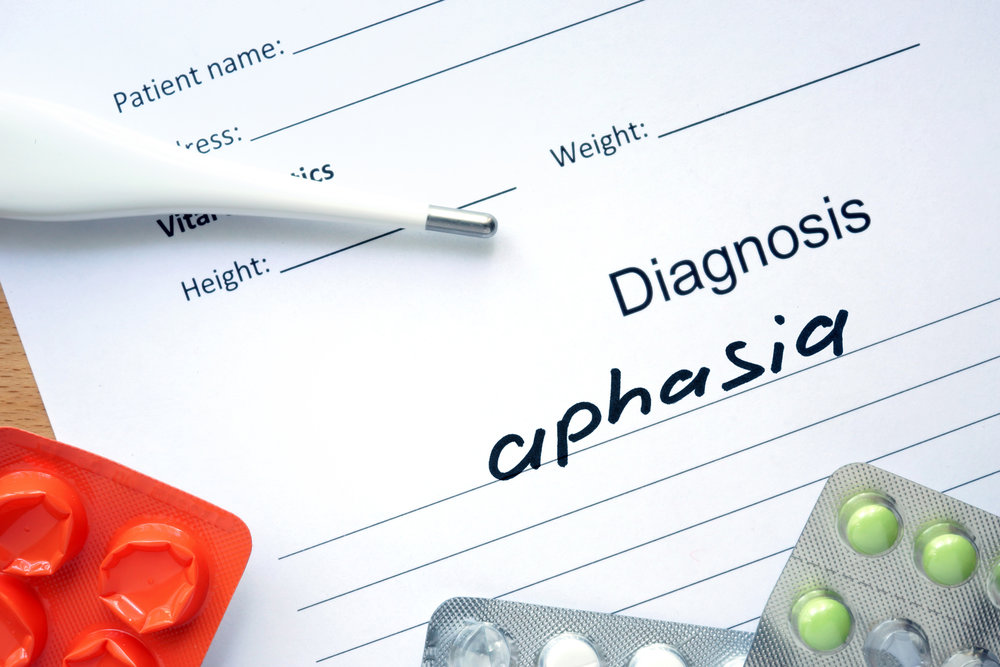Ways to treat Aphasia
If you’ve had a stroke, you also have a one in three chance of developing aphasia.
In addition to struggling with language disorder as a result of being diagnosed with aphasia, you will likely also experience severe psychological consequences. You may feel depressed, hopeless, or even “talked down to” by people that misinterpret aphasia as a sign of mental illness or a lack of intelligence.
In short, it can be a very trying time for both those diagnosed and their loved ones.
Luckily, you do have options for aphasia treatment.
Read on to learn more about aphasia and the different ways you can treat it.
What Is Aphasia?
Before we get into potential aphasia treatment options, lets first make sure you’re clear on what this disorder actually is.
Aphasia is a result of brain damage, most often after a stroke. Because the left side of your brain is the part that’s responsible for speech and language, you can assume that most people suffering from Aphasia have endured trauma in this section of their brains.
When diagnosed, you can expect to experience difficulty understanding what people are saying (regardless of the language they are speaking or your level of fluency with it.)
You may also struggle to write and read as well as you once did. In addition to having trouble understanding others, in some cases you may also have trouble speaking or remembering what you wanted to say next.
Sometimes, you may also have difficulty swallowing as a result of weak muscles in your tongue and mouth.
What Are The Symptoms Of Aphasia?
In some cases, the need for Aphasia treatment will be easy to recognize. In others, it can take quite some time to get the proper diagnosis.
Therefore, it’s extremely important — especially if you or someone you love has recently suffered some form of brain damage — to understand the symptoms.
When it comes to speaking, those with Aphasia may frequently mix up words. For example, if you wanted to ask for “salad dressing,” you might instead ask someone to pass you the “breadbasket” or a more unrelated word like “chair” or “kite.”
In extreme cases, those with Aphasia may even make up nonsense words.
When it comes to comprehension, those with Aphasia may struggle to follow a conversation, suddenly lose the ability to understand what’s being said, or even fail to understand why a joke is funny.
You may also find it challenging to read books. For example, you may get halfway down the page and fail to remember anything that came before it. You may also struggle with even basic arithmetic.
Understanding Your Case
When you decide to accept Aphasia treatment, the first thing you can expect to have happen is a series of tests to determine the severity of your case.
This is where working with a professional is incredibly important. You can formulate a specific, bespoke recovery plan.
Usually, you’ll be placed with a speech pathologist who is trained to evaluate the current level of your written, speaking, and verbal abilities. You should also expect to be upfront about what you can and cannot understand, as well as any ongoing linguistic challenges you’re experiencing.
It is not the time to hide things or to feel embarrassed.
During the diagnostic session, you’ll be asked to read and write several passages. You may also be asked to retell stories, repeat words and sentences, and even correctly name objects around the room.
You may also be given a photograph and be asked to describe the things you see in the picture. In some cases, you may also be asked to complete basic mathematical equations.
Aphasia Treatment Options
After your intake session, the actual treatment can begin.
Be aware that, with the help of a therapist, you may experience rapid recovery in as little as a few days or weeks after treatment. This is referred to as “spontaneous recovery,” and while it certainly doesn’t happen to everyone, getting professional help increases your chances.
Be aware, however, that the pace of your recovery may vary greatly — you may make incredible strides in one or two sessions, only to stall for a while after that.
All of this is completely normal.
You will learn how to strengthen the muscles in your tongue and mouth to prevent slurring. You’ll also relearn how to respond to social cues and practice correct intonation.
You will even use rote memory to help you associate words and objects with the correct meaning.
You and your therapist will work together to strengthen your basic conversational skills through role-playing activities. You’ll speak and listen at a variety of paces.
This will help you to rebuild your speech and language skills.
If you struggle to swallow, or deal with other side effects of the stroke or brain injury, you and your therapist will work to overcome these issues as well.
Need Aphasia Intervention?
Whether for yourself or for a loved one, we hope that this post has helped you to understand more about both Aphasia itself and the possible Aphasia treatment options.
Getting help — and admitting that you’re struggling — is never easy. You’ve made an incredible first step.
However, if you want to be able to strengthen you linguistic and comprehension skills, it’s where you go for that help that can make all the difference.
That’s where we come in.
Our specialized Speech and Language Pathologists are trained to provide the very best care possible. We provide you with several options so that you can find what works for you.
Get in touch with us today to learn more about how we can help put you on the road to recovery.

